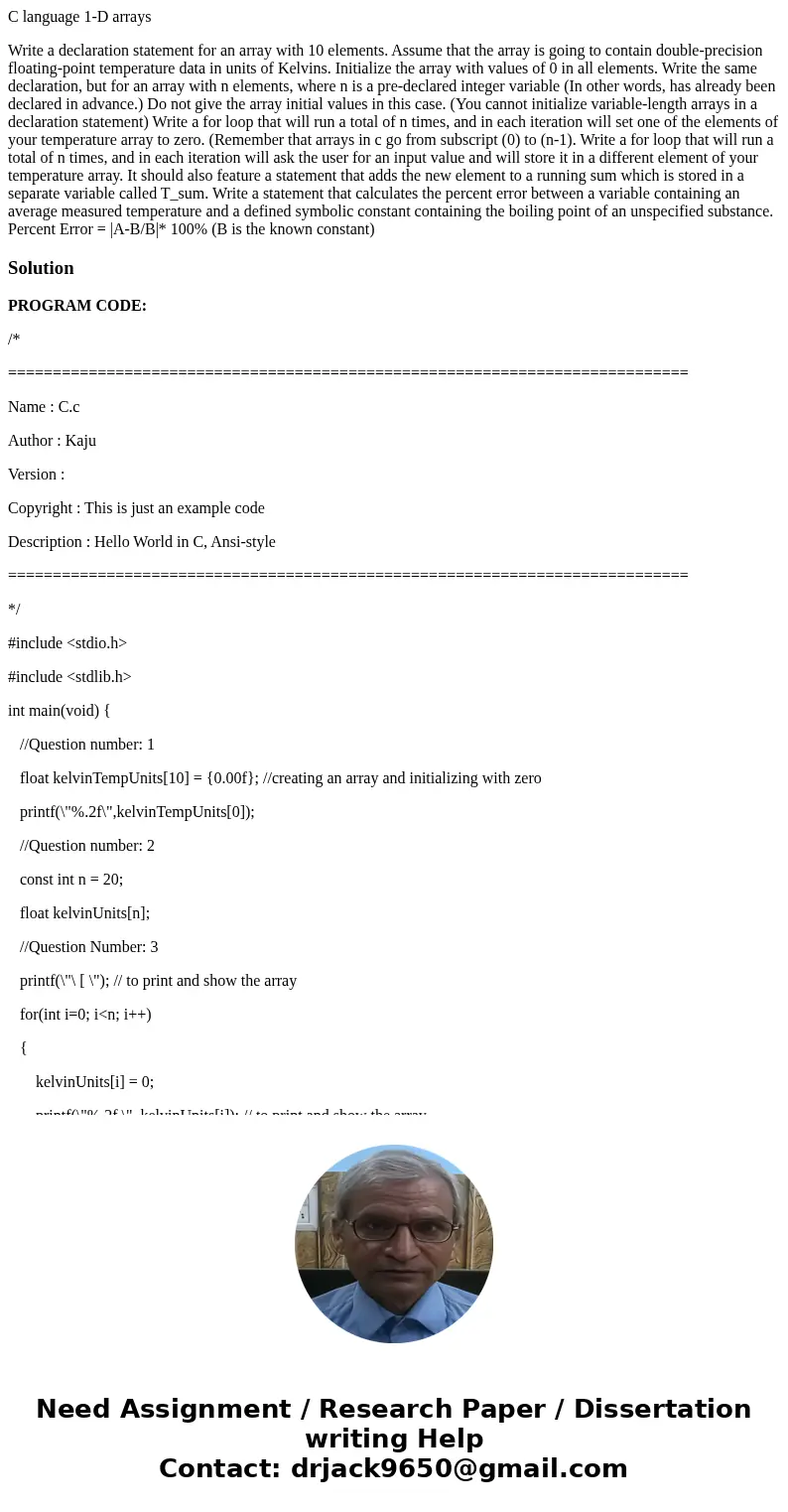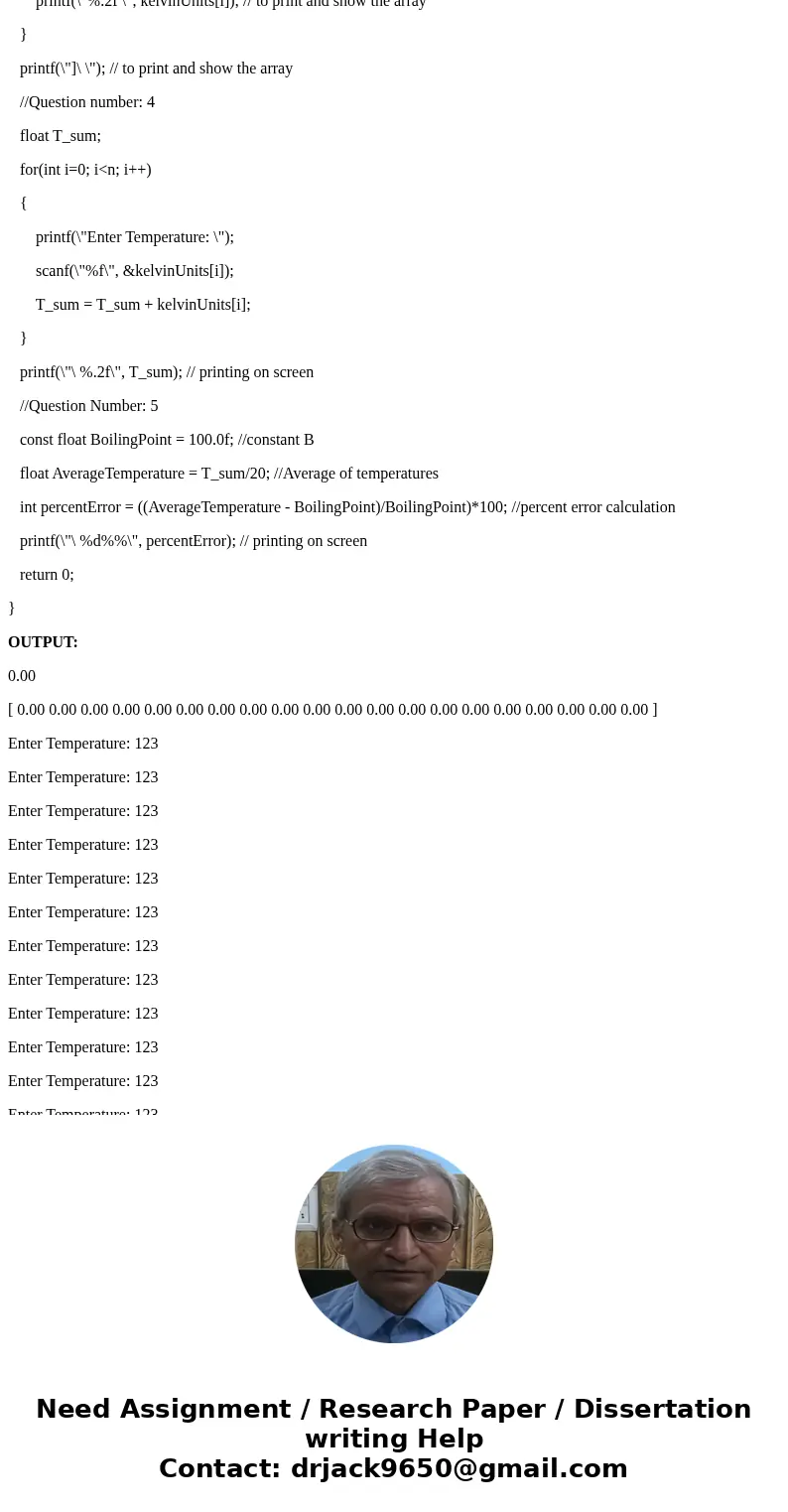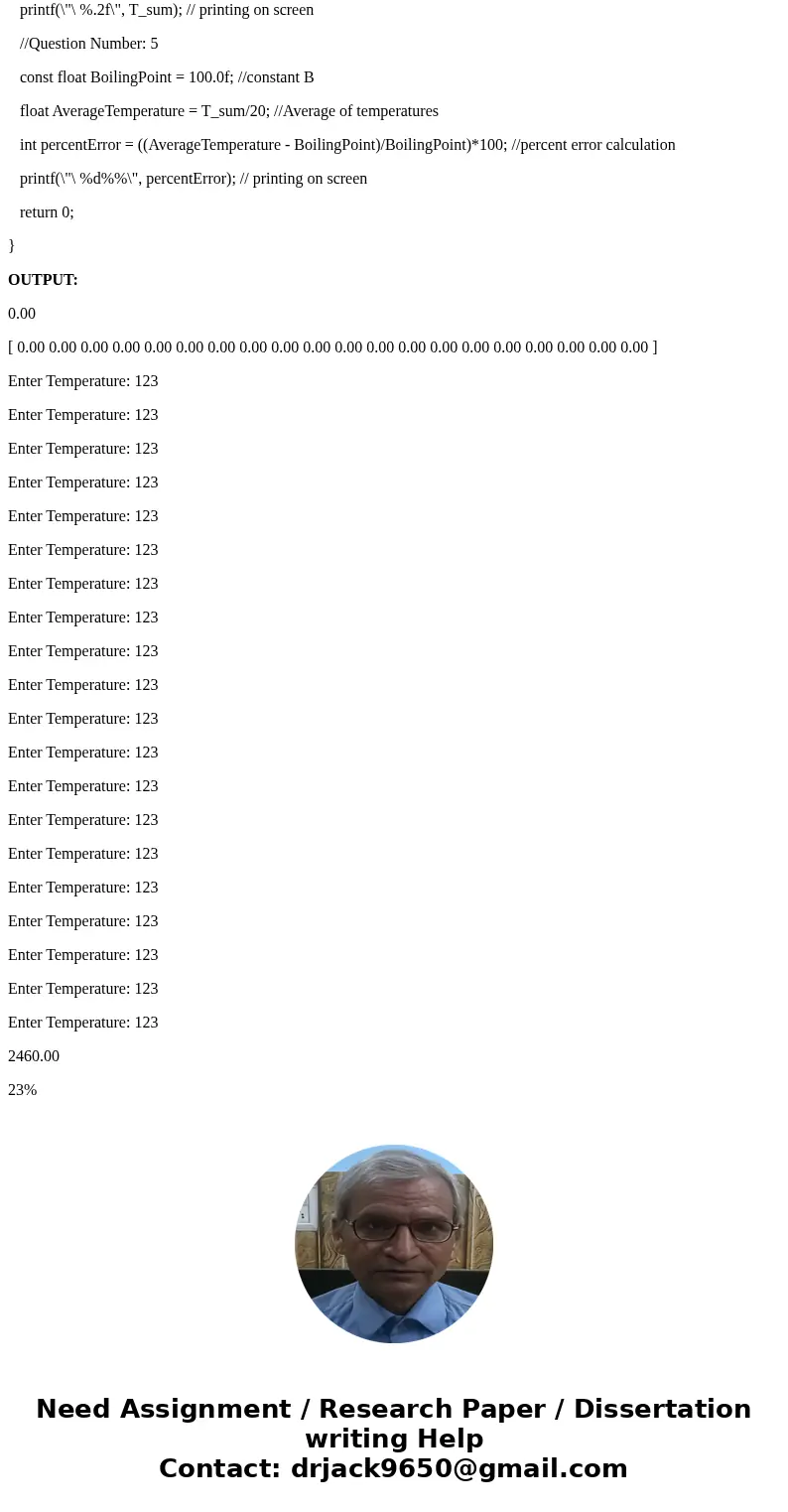C language 1D arrays Write a declaration statement for an ar
C language 1-D arrays
Write a declaration statement for an array with 10 elements. Assume that the array is going to contain double-precision floating-point temperature data in units of Kelvins. Initialize the array with values of 0 in all elements. Write the same declaration, but for an array with n elements, where n is a pre-declared integer variable (In other words, has already been declared in advance.) Do not give the array initial values in this case. (You cannot initialize variable-length arrays in a declaration statement) Write a for loop that will run a total of n times, and in each iteration will set one of the elements of your temperature array to zero. (Remember that arrays in c go from subscript (0) to (n-1). Write a for loop that will run a total of n times, and in each iteration will ask the user for an input value and will store it in a different element of your temperature array. It should also feature a statement that adds the new element to a running sum which is stored in a separate variable called T_sum. Write a statement that calculates the percent error between a variable containing an average measured temperature and a defined symbolic constant containing the boiling point of an unspecified substance. Percent Error = |A-B/B|* 100% (B is the known constant)Solution
PROGRAM CODE:
/*
============================================================================
Name : C.c
Author : Kaju
Version :
Copyright : This is just an example code
Description : Hello World in C, Ansi-style
============================================================================
*/
#include <stdio.h>
#include <stdlib.h>
int main(void) {
//Question number: 1
float kelvinTempUnits[10] = {0.00f}; //creating an array and initializing with zero
printf(\"%.2f\",kelvinTempUnits[0]);
//Question number: 2
const int n = 20;
float kelvinUnits[n];
//Question Number: 3
printf(\"\ [ \"); // to print and show the array
for(int i=0; i<n; i++)
{
kelvinUnits[i] = 0;
printf(\"%.2f \", kelvinUnits[i]); // to print and show the array
}
printf(\"]\ \"); // to print and show the array
//Question number: 4
float T_sum;
for(int i=0; i<n; i++)
{
printf(\"Enter Temperature: \");
scanf(\"%f\", &kelvinUnits[i]);
T_sum = T_sum + kelvinUnits[i];
}
printf(\"\ %.2f\", T_sum); // printing on screen
//Question Number: 5
const float BoilingPoint = 100.0f; //constant B
float AverageTemperature = T_sum/20; //Average of temperatures
int percentError = ((AverageTemperature - BoilingPoint)/BoilingPoint)*100; //percent error calculation
printf(\"\ %d%%\", percentError); // printing on screen
return 0;
}
OUTPUT:
0.00
[ 0.00 0.00 0.00 0.00 0.00 0.00 0.00 0.00 0.00 0.00 0.00 0.00 0.00 0.00 0.00 0.00 0.00 0.00 0.00 0.00 ]
Enter Temperature: 123
Enter Temperature: 123
Enter Temperature: 123
Enter Temperature: 123
Enter Temperature: 123
Enter Temperature: 123
Enter Temperature: 123
Enter Temperature: 123
Enter Temperature: 123
Enter Temperature: 123
Enter Temperature: 123
Enter Temperature: 123
Enter Temperature: 123
Enter Temperature: 123
Enter Temperature: 123
Enter Temperature: 123
Enter Temperature: 123
Enter Temperature: 123
Enter Temperature: 123
Enter Temperature: 123
2460.00
23%



 Homework Sourse
Homework Sourse